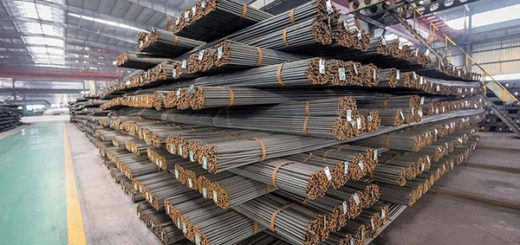Asphalt: A Versatile and Durable Paving Material
Asphalt, a widely used paving material in roads, driveways, and other surfaces. In this article, we will discuss about the asphalt, its composition, manufacturing process, applications, maintenance, and its impact on the environment.
What is Asphalt
Asphalt is derived from crude oil in the production of oil, gas, etc. and it is a dark, sticky, and highly viscous material. It is also called as bitumen or asphalt cement and is used as a binder in the production of asphalt concrete. Asphalt is construction composite material, and it is widely used in road construction, as well as for surfacing parking lots, driveways, and airport runways.
As mentioned, asphalt is a composite material consist with following materials.
- Bitumen
- Aggregates
- Filler materials
Bitumen is the binder that holds the aggregates and fillers together while developing a material with its cohesive properties.
Crushed stone, sand, and gravel are the common aggregate of asphalt, and they are responsible for strength and durability.
Fillers is mostly hydrated lime or Portland cement. It enhances performance of the mixture by improving its resistance to cracking and rutting.
The following steps are included in production process of asphalt.
- Aggregate Selection
- Drying and Heating of Aggregates for better binding and adhesion properties to have consistent mix.
- Asphalt Binder Preparation
- Mixing
- Quality Control: mixture gradation, temperature and binder content will check.
- Transportation
- Paving: Desired thickness and smoothness will be maintained.
- Compaction: Compaction is done using rollers and making sure to achieved required density.
- Cooling and Setting: Dring this process asphalt gains strength and stability.
Benefits of Asphalt
- Durability and Longevity
Asphalt is renowned for its exceptional durability and longevity. It can withstand heavy traffic loads and extreme weather conditions without significant deterioration. This resilience translates into reduced maintenance costs and prolonged service life for roadways and pavements.
- Cost-Effectiveness
Compared to other paving materials, asphalt offers a cost-effective solution. Its lower initial installation costs, combined with its long-term durability, make it an economical choice for infrastructure development. Additionally, asphalt’s smooth surface reduces fuel consumption and vehicle maintenance costs.
- Quick Construction and Repair
Asphalt pavements can be constructed and repaired relatively quickly compared to alternative options. With efficient paving techniques and advanced equipment, construction projects can be completed promptly, minimizing disruptions to traffic flow.
- Skid Resistance and Safety
Asphalt surfaces offer excellent skid resistance, which enhances road safety by reducing the risk of accidents, especially during wet conditions. Its dark color also promotes better visibility, further contributing to road safety.
- Recyclability
Asphalt is a highly recyclable material, contributing to sustainable construction practices. When asphalt pavements reach the end of their service life, they can be reclaimed and reused in new asphalt mixtures. This recycling process conserves natural resources and reduces the amount of waste sent to landfills.
Applications of Asphalt
Asphalt finds numerous applications in the construction industry due to its versatility and durability. Some common uses of asphalt include:
- Road construction and resurfacing
- Driveways and parking lots
- Airport runways and taxiways
- Bicycle and pedestrian pathways
- Racetracks and sports surfaces
- Roofing materials (asphalt shingles)
- Waterproofing membranes
- Bridge decks and highways
New Developments in Asphalt Technology
As useful material in construction sector, research is involving for new innovation in this area. It is known fact that we need the new construction materials or new form of materials having the enhance and sustainable properties. Some of the important advancements of the asphalt technology are as follows.
- Porous asphalt for enhanced stormwater management
- Rubberized asphalt made from recycled tires.
- Thin asphalt overlays for cost-effective maintenance
- High-modulus asphalt for heavy-duty applications
- Warm-mix asphalt technologies for reduced energy consumption
Asphalt has revolutionized the way we construct and maintain our transportation infrastructure. Its exceptional durability, cost-effectiveness, and recyclability make it an ideal choice for a wide range of applications. As technology advances, we can expect further innovations in the field of asphalt, leading to even more sustainable and high-performing solutions. With proper maintenance and responsible use, asphalt will continue to pave the way for safe and reliable transportation systems.
FAQs
1. Is asphalt suitable for all climates?
Yes, asphalt can withstand a wide range of climates, including extreme heat and cold. Proper design and construction techniques ensure that asphalt pavements perform well in various weather conditions.
2. How long does an asphalt pavement typically last?
The lifespan of an asphalt pavement depends on several factors, such as traffic volume, climate, and maintenance practices. With regular maintenance, asphalt pavements can last 20 years or more.
3. Is asphalt environmentally friendly?
While asphalt production has some environmental impact, innovations in technology and recycling have made asphalt more sustainable. The use of recycled materials and energy-efficient manufacturing processes contributes to its eco-friendliness.
4. Can asphalt be repaired easily?
Yes, asphalt can be repaired relatively easily. Cracks and potholes can be filled and sealed, extending the lifespan of the pavement. Timely repairs help prevent further damage and ensure the safety of road users.
5. Are there any alternatives to asphalt for road construction?
There are alternative materials such as concrete, but asphalt remains the most commonly used material for road construction due to its cost-effectiveness, versatility, and performance under heavy traffic loads.




